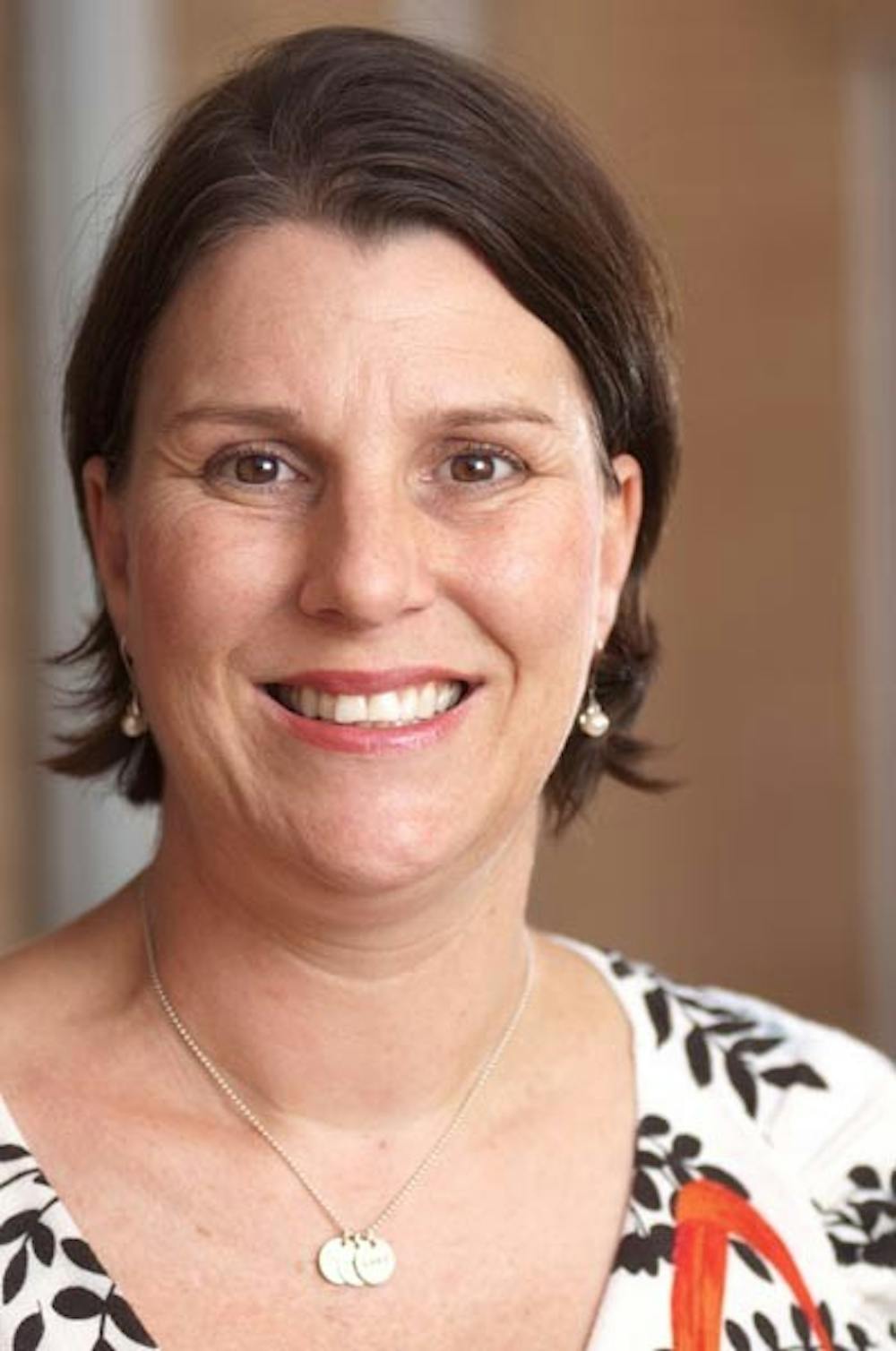ASU students need a steady diet of obesity education.
That was the message behind a lecture on obesity at the West campus Thursday night.
“Big Fat Myths: Understanding Obesity through a Cultural and Biocultural Lens” was hosted by ASU anthropologist Alexandra Brewis Slade.
At the event, Brewis Slade challenged several misconceptions about obesity in an effort to better educate ASU students on the issue. She also explored how social environments affect weight gain.
Brewis Slade is executive director and professor at ASU’s School of Human Evolution and Social Change, as well as the director ASU’s Center for Global Health, an international health studies department in Tempe.
She first defined obesity by using Body Mass Index, a ratio of a person’s height and weight. A Body Mass Index of 25 or above is considered overweight, while an Index higher than 30 indicates obesity.
Brewis Slade, who normally teaches on the Tempe campus, visited West as part of a yearlong campaign exploring the topic of food, dubbed “Much Ado About Food.”
She also expressed her concern about the social stigmas surrounding obesity. One of the myths she addressed during her lecture focused on the misconception that “fat is bad.”
“There is a preconception that fat people are lazy,” Brewis Slade said. She added that studies have shown that slightly overweight individuals, by Body Mass Index, actually tend to be the healthiest.
Brewis Slade and her students did a study in 2009 on overweight women and how they stigmatize themselves. The data showed that women who surround themselves with people who are not judgmental about weight are more likely to have a better self-image than women who do not.
Another myth Brewis Slade tackled was the idea that losing weight is easy, and that anyone can do it.
This is false, she said because humans are biologically designed to live hunter-gatherer lifestyles, eating mostly fruit, vegetables and lean meat. People’s digestive systems have trouble handling junk food, said Brewis Slade, and that makes it incredibly difficult to lose weight.
Brewis Slade also pointed out that obesity is an international problem. A number of her students traveled to countries across the world, including Samoa, Paraguay and Iceland, in an effort to learn about negative sentiments toward obesity on a global scale.
What they found challenged the preconception that developing countries value healthy, large-bodied women. In fact, the most negative feelings toward obesity occurred in the developing countries, and the U.S. ranked lowest on the chart, Brewis Slade said.
“We need a healthier society,” said psychology freshman Juan Navarro, who attended the event. “I think this research should help us with that.”
Lawrence Mandarino is the director of ASU’s Center for Metabolic Biology in Tempe. He plans to begin a study this winter on obesity at ASU in conjunction with the Mayo Clinic, where Mandarino is a professor of medicine when not teaching at ASU.
Mandarino will head the research aimed at gathering data on students’ weight gain at ASU. There has been no previous information collected on obesity, cholesterol or cardiovascular diseases among ASU students, Mandarino said.
“We want to know what behaviors cause ASU students to gain weight inappropriately,” Mandarino said.
The initiative, while still in the planning stages, has support from ASU, Mandarino said.
Mandarino wants the research, which would be done through interviews and what he called “mini physicals,” to have a similar effect to anti-smoking campaigns, which have greatly decreased smoking rates in young people, he said.
Brewis Slade, in closing, gave several tips to the audience on how to avoid falling into myths and preconceptions, focusing on education and awareness.
“We need to recognize that medical views of obesity are strongly influenced by cultural ideas,” she said. “Be wary of the stigmas around obesity and separate your cultural assumptions from the facts.”
Reach the reporter at alex.ferri@asu.edu
Want to get the latest ASU news in your inbox every day? Sign up for our new e-mail newsletter.





